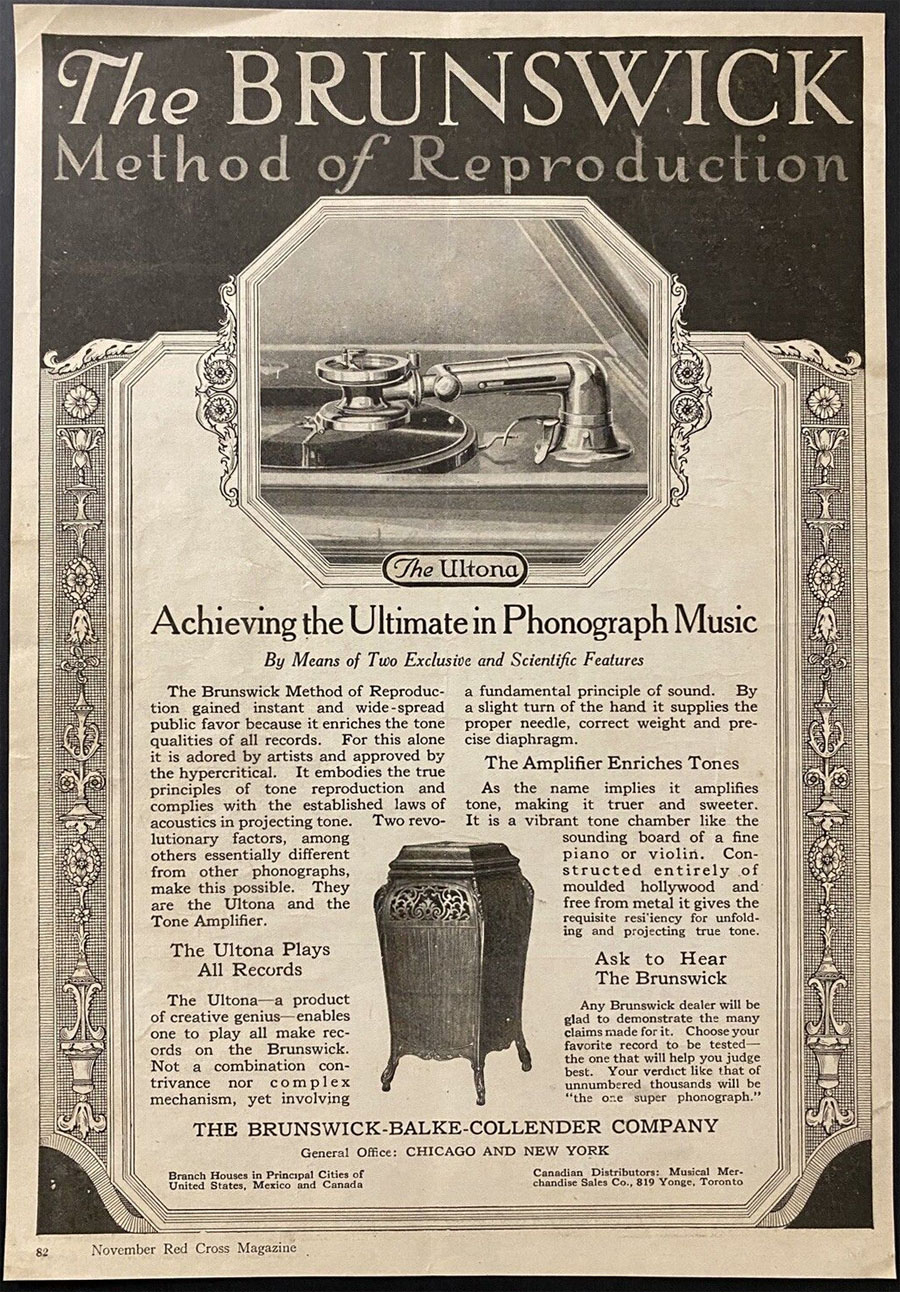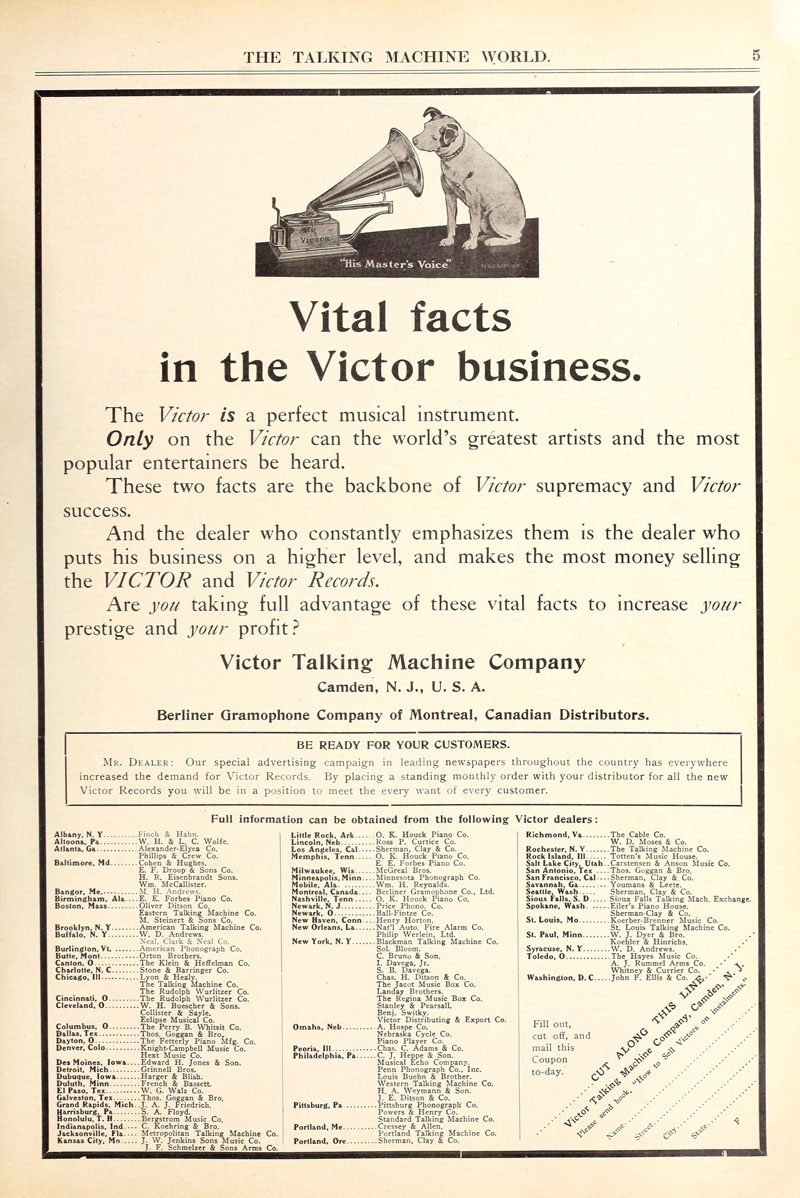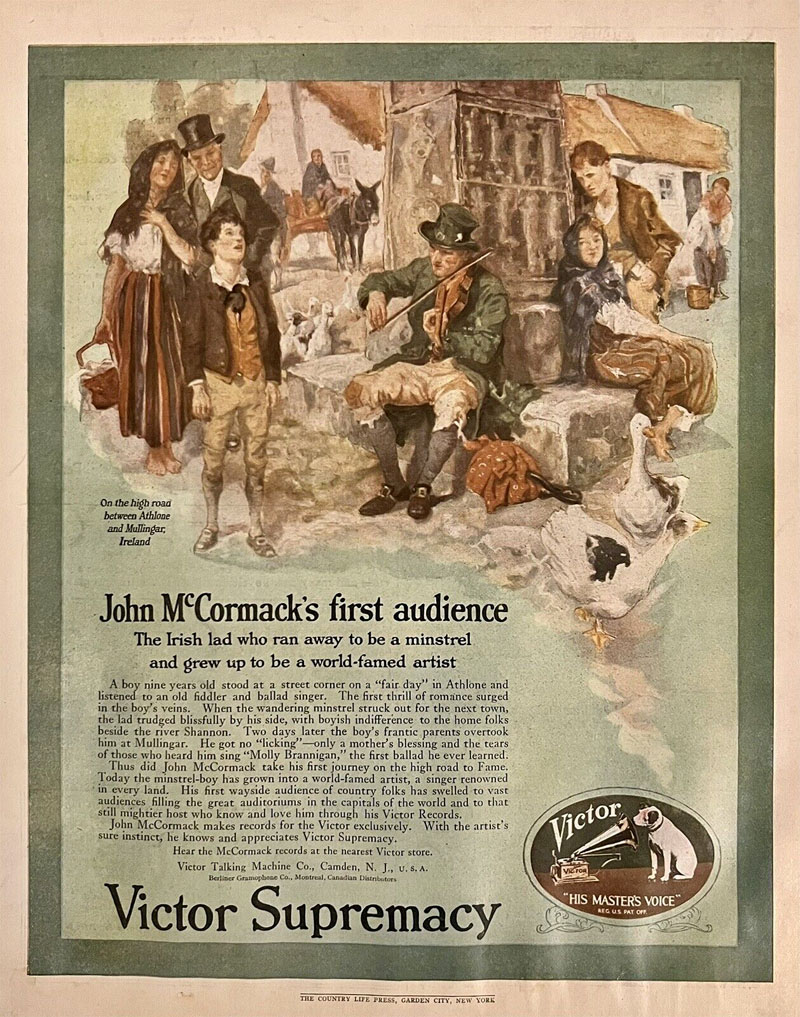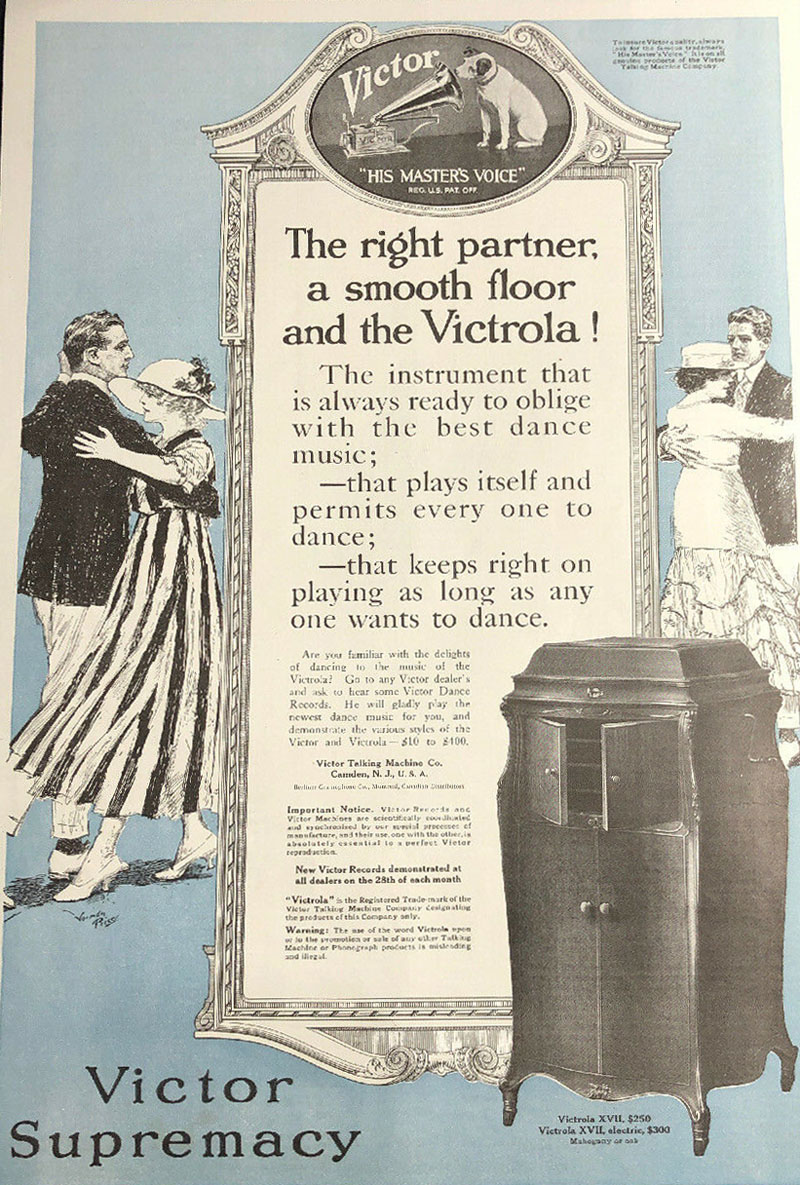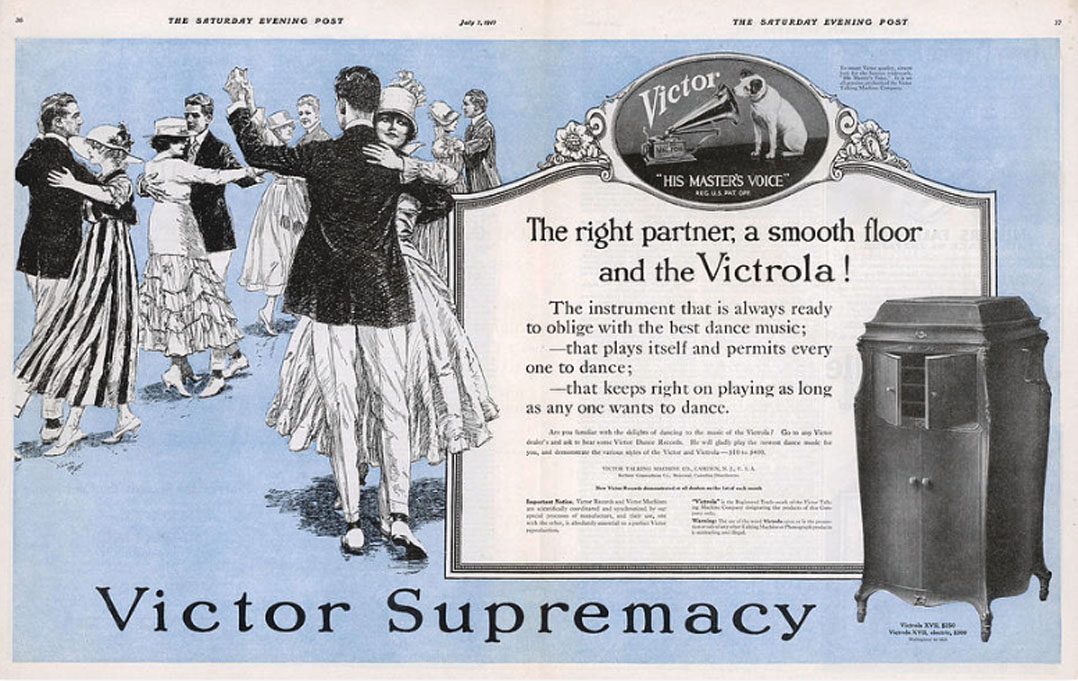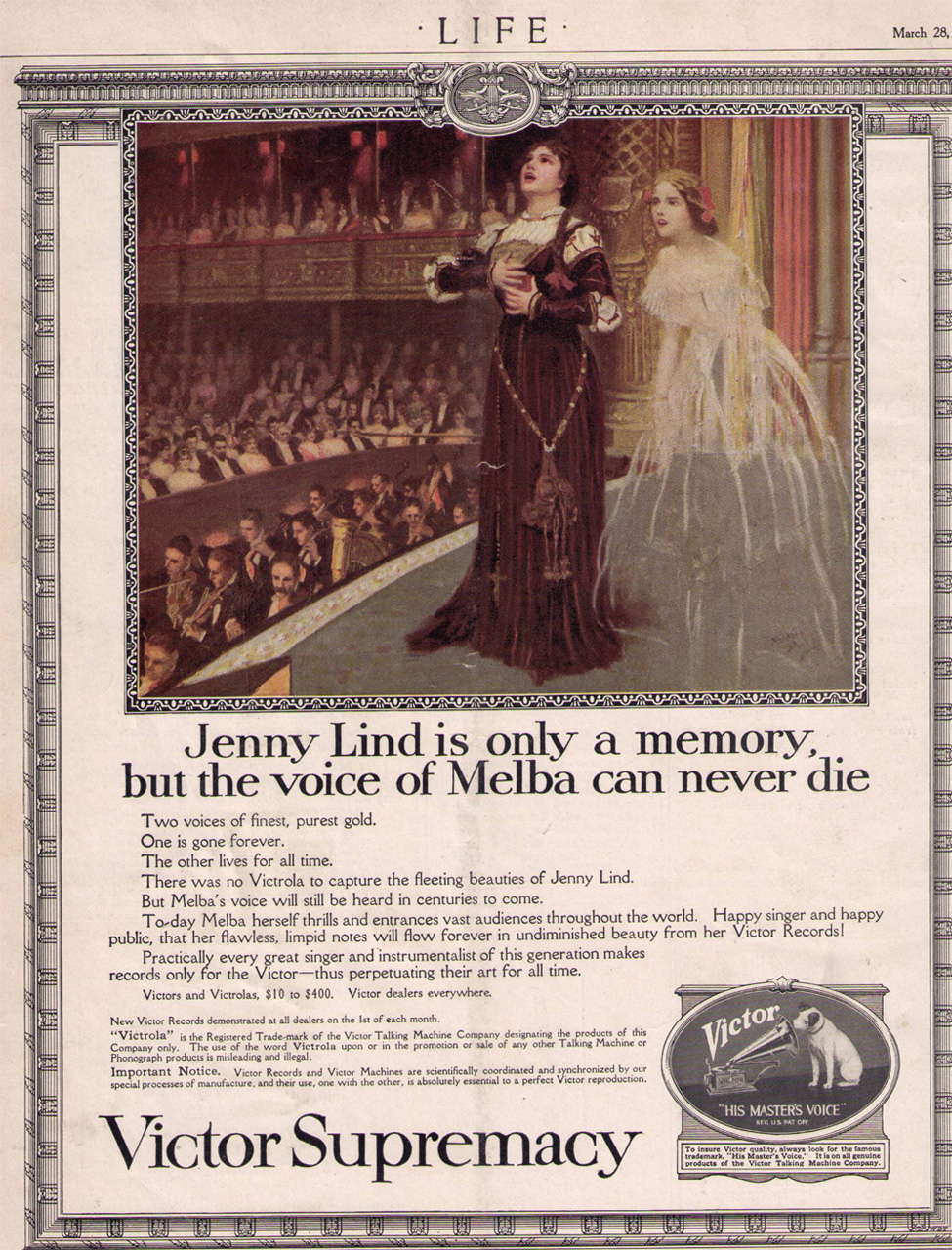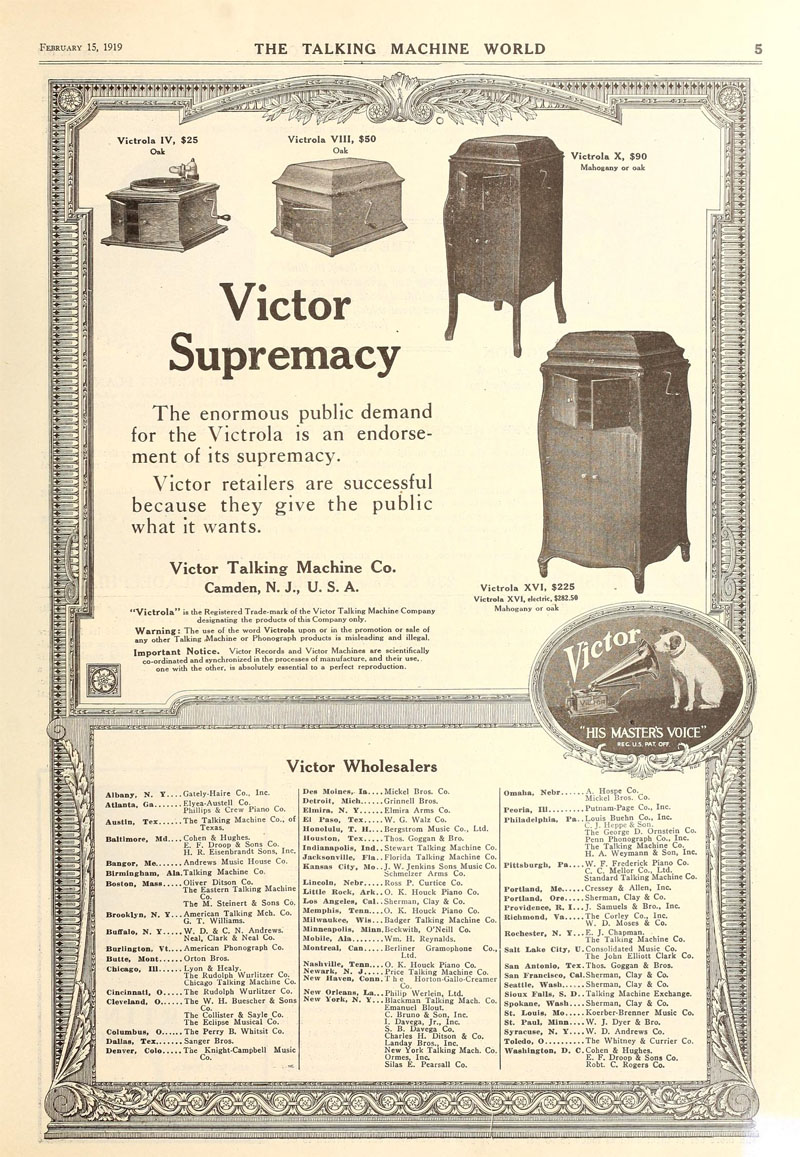By Doug Boilesen 2023
In the May 15, 1914 issue and again
in July and September 1914 issues of the trade magazine The Talking
Machine World the Silas E. Pearsall Company's ad stated they
"were first in the field as Jobbers of Victor Products to believe
in the Supremacy of the Victor.
The Pearsall Company's belief in Victor
Supremacy was based on Victor's "two facts" in a 1907
Victor ad which were stated as the backbone of Victor's supremacy
and Victor's success:
The Victor is
a perfect musical instrument.
Only
on the Victor can the world's greatest artists and
the most popular entertainers be heard.
Victor's Supremacy would be seen
again in a 1910 Victor ad, this time with "Quality" as
the backbone:
"Quality is
the backbone of Victor success and Victor supremacy."
And like the 1907 ad defining Victor's
supremacy, the 1910 again stated those same two important facts
which elevated Victor above all competitors: It's the "perfect
musical instrument" and its Victor Records are "works
of art -- musical masterpieces."
Victor Supremacy is built on
Victor Quality - The Talking Machine World, December 15, 1910.
The Pearsall Company ad of May 1914
may be the first jobbers saying in an ad that they believed in the
advertising concept of the "Supremacy of the Victor" in
a Victor ad.
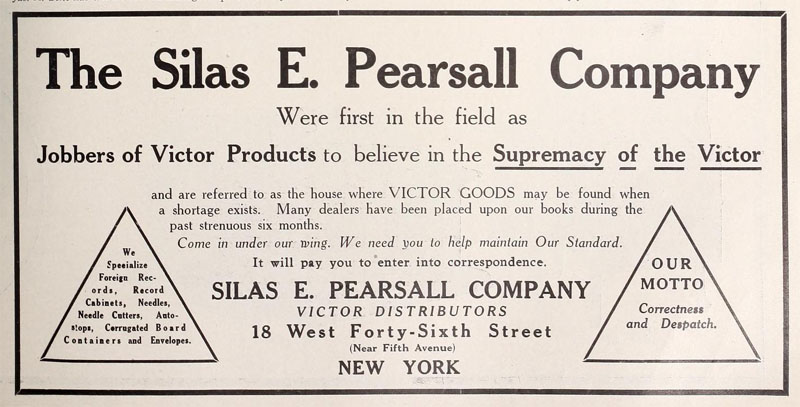
The Talking Machine
World, May 15, 1914.
Victor Supremacy
On December 4 and 5, 1914 Victor Talking
Machine Co. took out full-page ads in every New York evening and
morning newspaper, each headed with "Victor Supremacy."
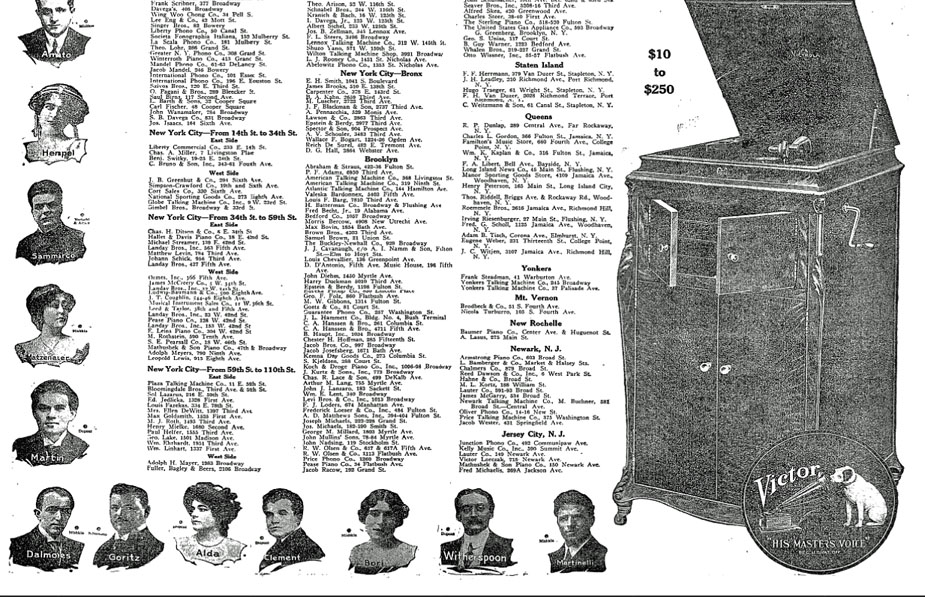
Full page Victor Supremacy
ad in New York Times, December 5, 1914. (Courtesy NYT Timemachine).
The Talking Machine World, December
15, 1914 wrote the following in their article
"How the Dealer is Helped:"
"The heading "Victor Supremacy"
was followed by two short and pithy paragraphs calling attention
to the fact that the world's greatest artists make records for
the Victor Co., and emphasizing that the scope of the Victrola
is unlimited."
The numerical strength of
Victor representation in local territory may be gathered from
the fact that 241 names were listed in the advertisement...this
list being the first one of its kind ever published."
These ads of December 4 and 5, 1914
can be called the beginning of the "Victor Supremacy"
advertising campaign for the Victor Talking Machine Co. in the popular
press.
They echo the 1907 phonograph trade
magazine ad which emphasized the two messages that would commonly
be associated with "Victor Supremacy" -- that the Victrola
was the greatest musical "instrument" of its kind and
that Victor's
recording artists were the "World's Greatest Artists."
The New York newspaper ads of December 1914, however, now highlighted
in bold and in the phrase "Victor Supremacy." It
was an advertising phrase designed not be be ignored - two words,
dominant and definitive.
Victor's supremacy was also associated
with the number of dealers they had, the number of machines and
records they sold, the size of their advertising budget, and even
Victor's Supremacy over mortality. A 1918 ad stated "Practically
every great singer and instrumentalist recording for Victor of this
generation will have their art perpetuated "for all time."
"The voice of Melba can never
die."
Below are some examples of Victor
Supremacy advertisements which were seen from 1915 into the
early 1920s.

Victor ad in The Talking
Machine World, August 15, 1915
Victor Supremacy, The
Detroit News, December 8, 1915
The popularity of the Victor
is "Victor Supremacy" -- "The enormous public
demand for the Victrola is an endorsement of its supremacy."
The Talking Machine World,
February 15, 1919. p. 5Victor
ad in The Talking Machine World, January 15, 1916
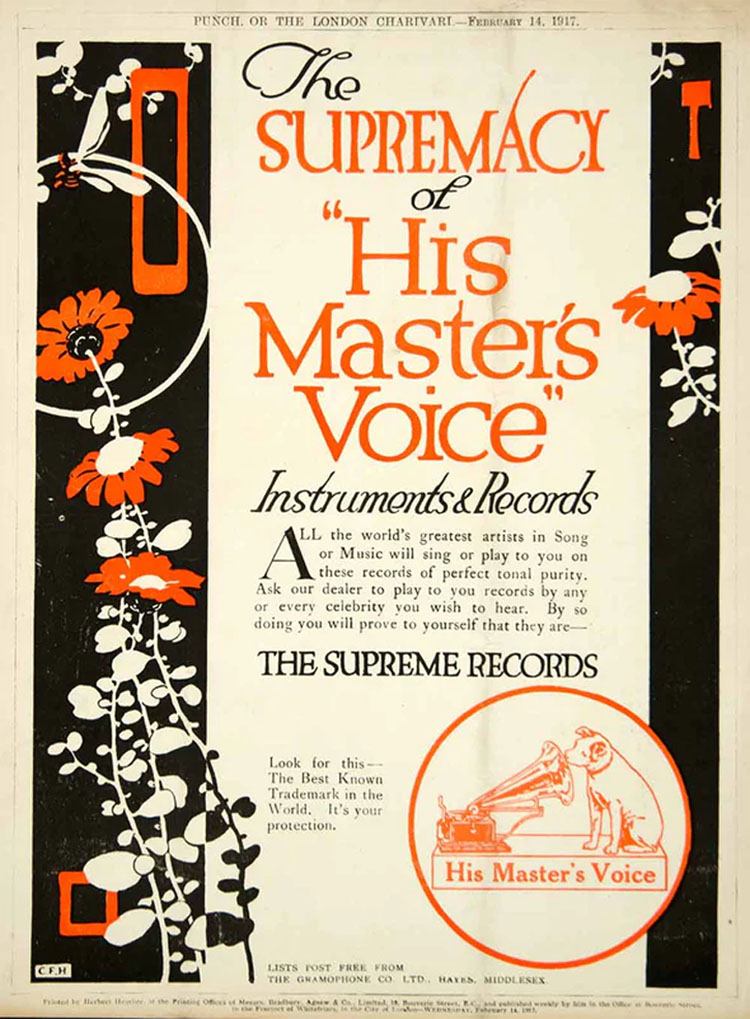
The Supremacy of "His Master's
Voice," Punch, February 14 1917 (Courtesy PeriodPaper)

Victor ad in The
Ladies' Home Journal, June 1917
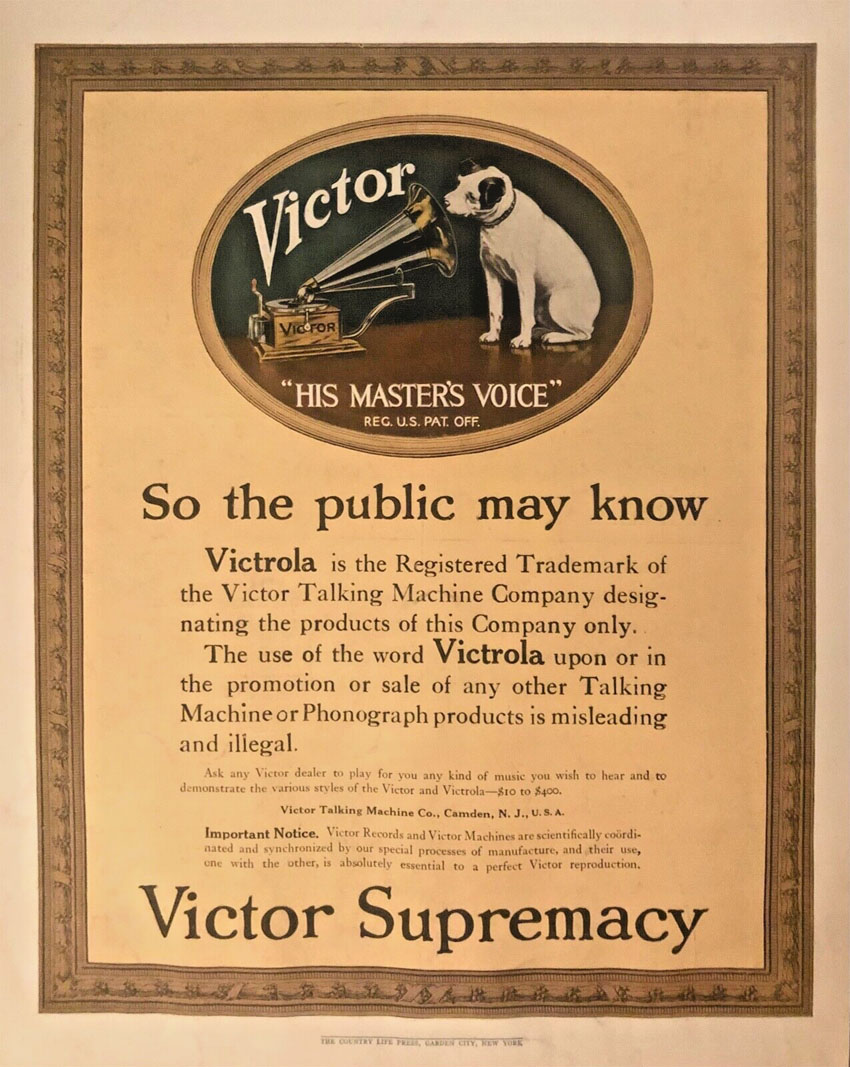
Victor Supremacy,
1917
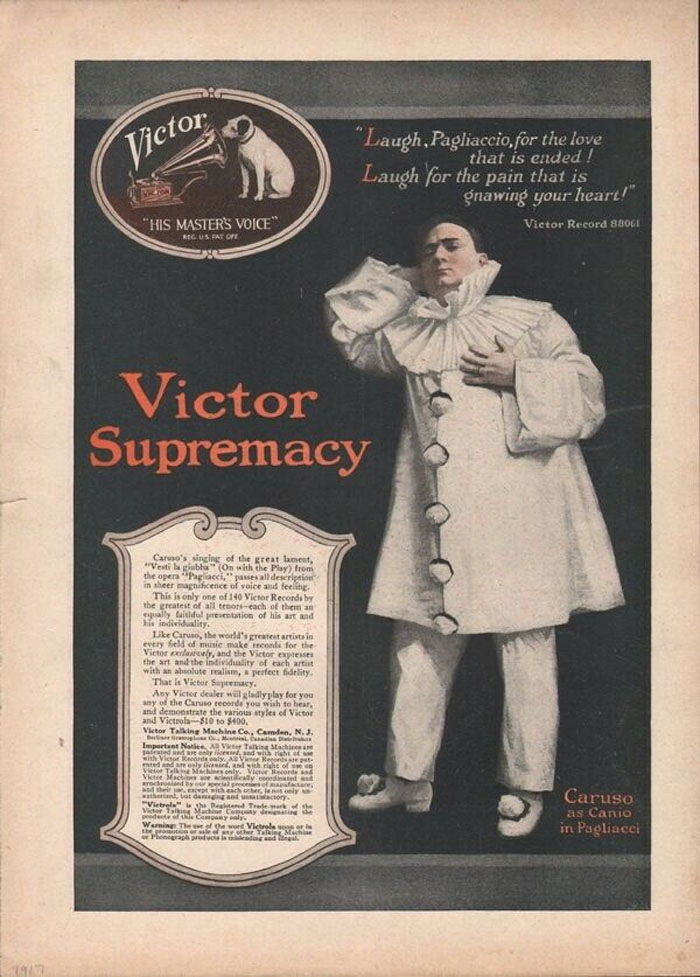
Enrico Caruso,
Victor Supremacy, 1917
John McCormack,
Victor Supremacy, The Country Life, 1917
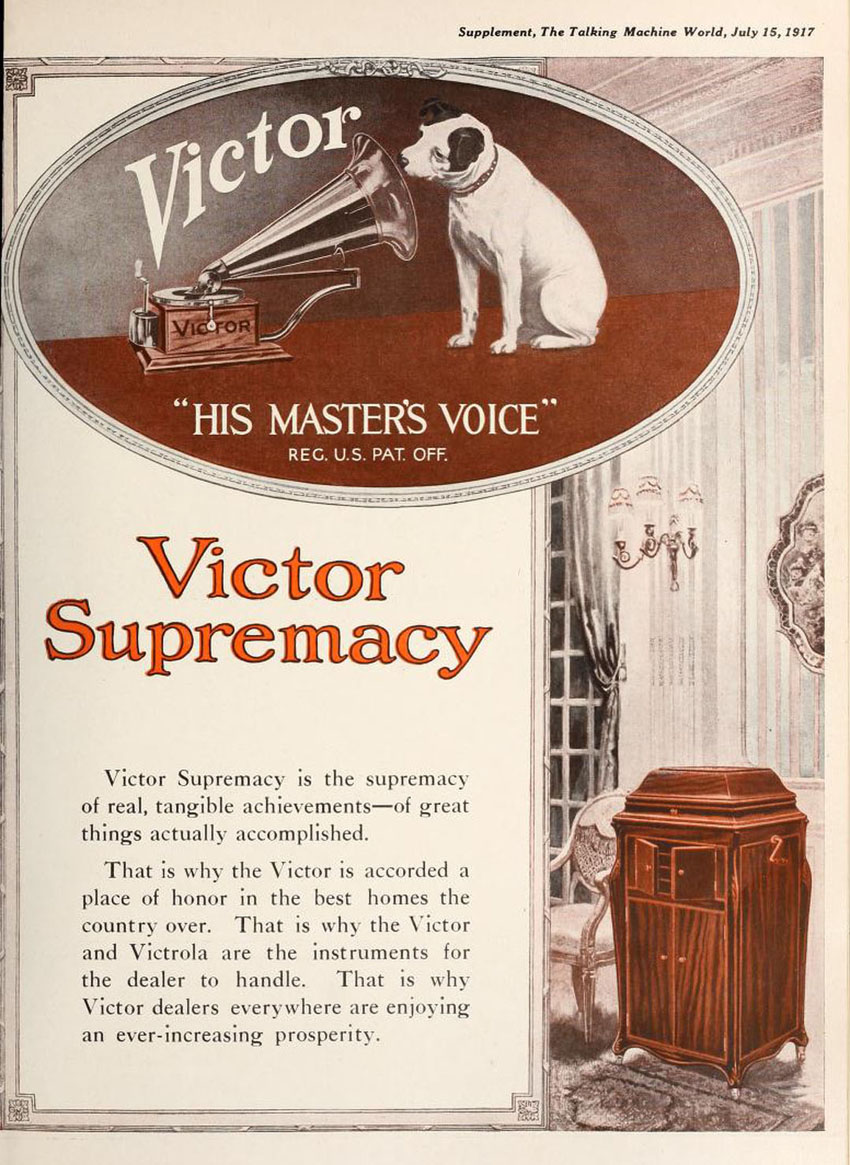
The Victor is "in
the best homes the country over." Victor Supremacy,
The Talking Machine World, July 15, 1917
"The instrument
that is always ready to oblige with the best dance music..."
Victor 1917
The Saturday
Evening Post, July 7, 1917

Victor Supremacy
- The embodiment of all that is best in music, Harper's Magazine,
1917
Victor ad in
Life Magazine, March 28, 1918 (PM-2008)
Victor Supremacy
Voices that "can
never die."
Voices that will
live "for all time."
Voices that "will
be heard in centuries to come."
Voices that "will
flow forever in undiminished beauty."
Practically every
great singer and instrumentalist recording for Victor of this
generation will have their art perpetuated "for all time."

Victor Supremacy,
1918
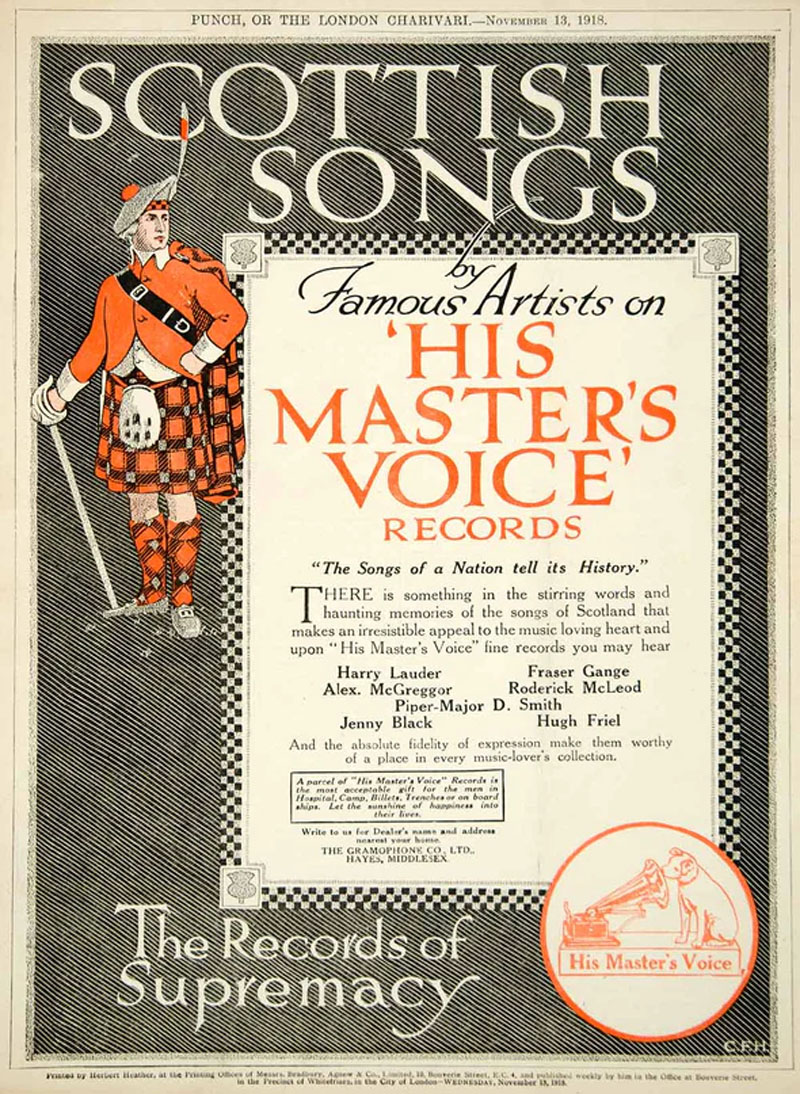
"The Records
of Supremacy," Punch, November 13, 1918

Victor's Supremacy is evidenced
by its record catalog, a book everyone will want and "a
tribute to Victor ingenuity and thoroughness. "The
World's Greatest Catalog of Music - Victor Supremacy."
The Ladies' Home Journal, February, 1919.
The popularity of the Victor
is "Victor Supremacy" -- "The enormous
public demand for the Victrola is an endorsement of its supremacy."
The Talking Machine World,
February 15, 1919. p. 5

Geraldine Farrar,
Victor Supremacy, 1919

Alma Gluck, Victor
Supremacy, 1919
"Victor Supremacy - all the
time and everywhere. The
Talking Machine World, August 15, 1920.
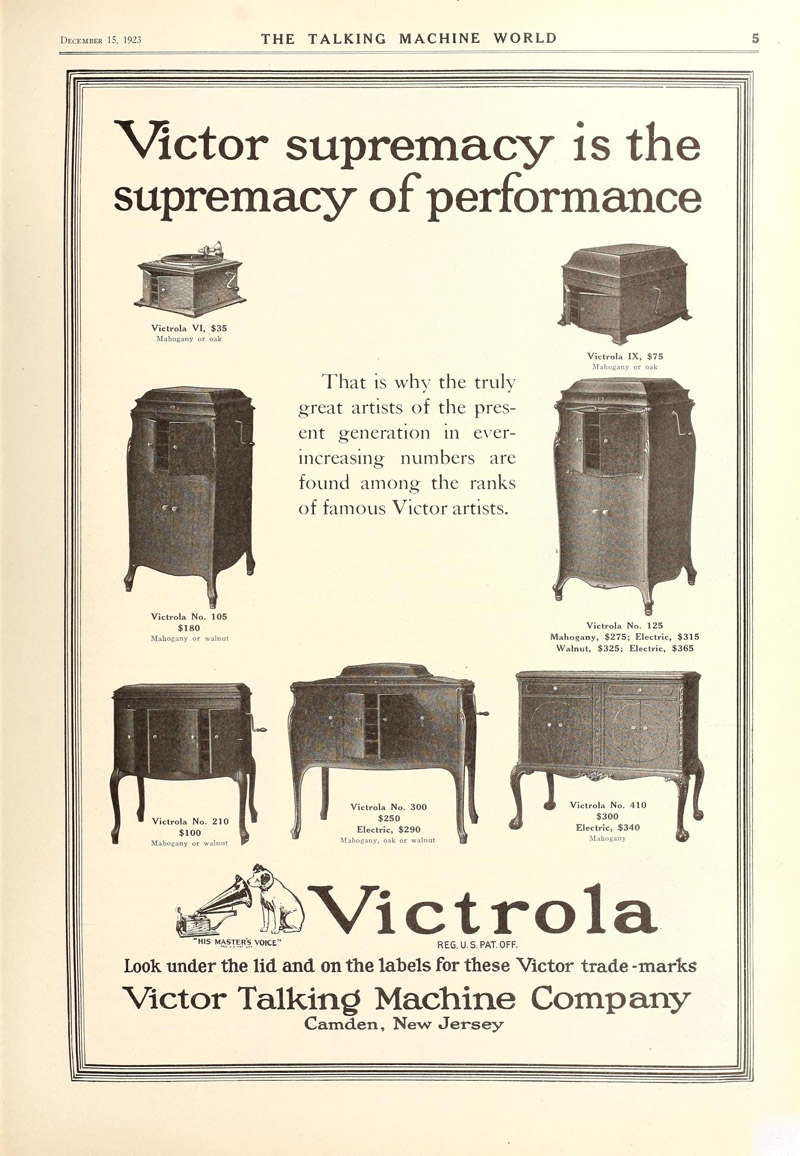
"Supremacy of Performance,"
The Talking Machine World, November 15, 1923. p. 5

RCA Victor Co. Limited, Montreal, Booklet
cover - Symbol of Air Supremacy, 1941
6.5" x 9" booklet

The words Supreme
and Supremacy, of course, weren't owned by Victor so Pathé,
Brunswick, Aeolian-Vocalion, Decca, Keen-O-Phone and many other
phonograph companies used these words to describe their own "supremacy"
or superiority in their own terms..
Pathé had a model
named the "Supreme" and used the slogan "Pathé
is Supreme" in early 1920's ads, also saying their Pathé
trade-mark was a "symbol of supremacy in every corner of the
world."

See Pathé
is Supreme for some respective Pathé advertising
examples from 1920.
Keen-O-Phone -
The Superiority of the "most perfect talking machine
in the talking machine world...Its simplicity of operation; its
unlimited scope of repertoire led reasons for its supremacy."
Aeolian-Vocalion
- "The Superior Tone of the Aeolian-Vocalion"
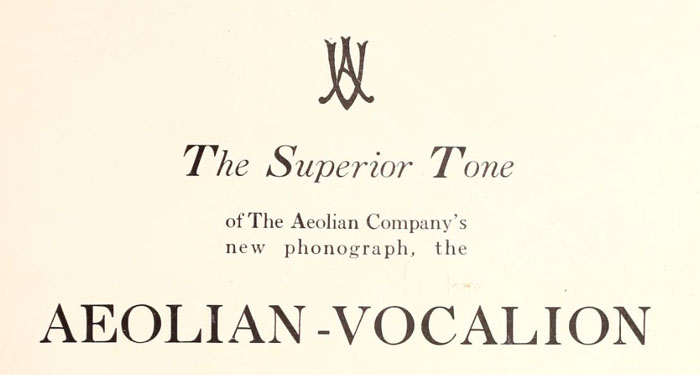
The Talking Machine
World, January 15, 1916
Brunswick - The
"one super phonograph" which had achieved "the
Ultimate in Phonograph Music" with its "Ultona,"
said to be "a product of creative genius."
The Brunswick's Ultona,
Red Cross Magazine, November 1919
Decca - "The
Decca owes its supremacy to its ingenious and fully patented construction."
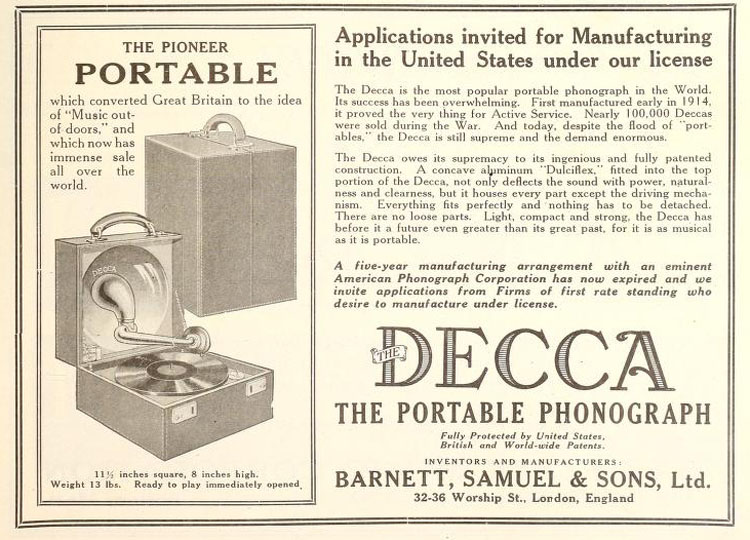
The Decca - The Portable
Phonograph, The Talking Machine World, February 15, 1922
Widdicomb - "The
Aristocrat of Phonographs" with its Widdicomb Amplifying Tone
Chamber. This is an exclusive feature which gives a supremacy
of tone to be found on no other phonograph."
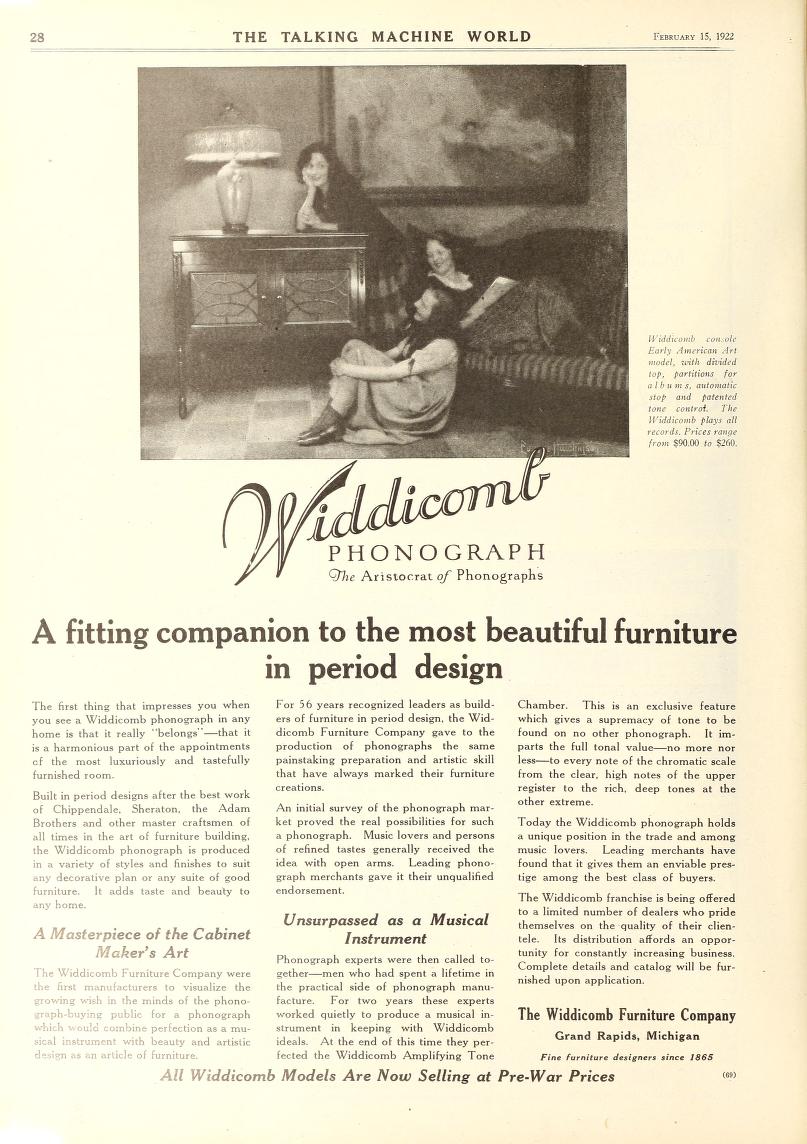
Widdicomb Phonograph, The Talking
Machine World, February 15, 1922

Phonographia
|





